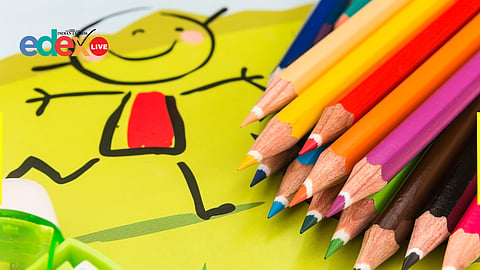
- News
- Campus
- Exam
- Podcast
- Web Stories
- Do You Know
- Path Finders - UG Programs
- Videos
- Élitscape

The basis of academic success in the university is established in the early years of schooling, as students originally acquire skills, habits, and attitudes that shape their entire learning process. Primary education is essential not only for academic advancement but also for the development of intellectual, emotional, and social skills necessary to assume the responsibilities of senior secondary education and ultimately higher education.
Foundations of holistic development
Intellectual development characterises the initial phase of a student's life. Since they enter primary school, learners start building their thinking skills and capacity to think analytically.
Fundamentals of problem-solving, memorisation, focus ability, and critical thinking are established through those early years. These are further developed by exposure to experiential learning environments such as science labs, ICT labs, and creative spaces such as art rooms and makerspaces, where students gain early exposure to equipment such as robotics kits, VR learning modules, and even 3D printers and sewing machines.
In terms of emotion, the student develops confidence, self-concept, and resistance to problems. Socially, primary school is where the individual learns to work together in groups, to cooperate, and to communicate, something that benefits the individual later in working and educational life.
Fundamental building blocks for success at school
Basic language and arithmetic skills are the foundation upon which everything else will be learned subsequently. The skills to read to comprehend, write accurately, and handle numbers confidently are skills applicable to every subject taught in school. Perhaps most crucially, alongside early acquisition of critical thinking skills via inquiry and dialogue, students are better placed to cope with advanced problem-solving at senior school and at university.
Development through project work, library use, and planned literacy events like author visits and book weeks also develops these early skills and fosters an appreciation of lifelong learning.
Developing resilience through self-directed learning
The student’s natural curiosity is also developed during elementary school. Space for exploration and problem-solving provides children with opportunities to internalise a desire to learn. Of equal worth is the cultivation of the independent learning ability. Through small-scale research work, option learning, and directed independent study, students acquire the capability of taking responsibility for learning.
Involvement in multidisciplinary subjects like pottery, block printing, visual arts, and music instruction guarantees this independence because students are free to experiment with different intelligences and be accountable for their actions. Resilience, or the ability to bounce back from difficulty quickly, is built by establishing a safe and supportive learning environment where failure is an inevitable aspect of learning. These are the necessary skills to succeed in university, where students must learn to manage their own time, study, and goals.
Creating interdisciplinary thinkers through experiential learning
In our education model, we follow experiential learning and interdisciplinary study right from the start. For example, thematic learning units merge science, literature, and fine arts so that students learn to imagine areas of overlap among subjects and recognise how to connect the dots to apply what is being studied in real situations. It assists in developing a mindset for analytical thinking and life-long learning, which are major competencies in the context of higher education.
Senior secondary schooling then follows up on this with subject specialisation, research work, and independent thought. Through the course of their studies, students establish strong concentration and study skills, study for competitive entry exams, and establish the critical thinking and communication skills needed for university success. At the same time, they are taken through the career choice-making process so that they can further enhance their preparation.
Closing the gaps in the education system
Although school-university advancement is well delineated on paper, there are still fields of gaps that have to be bridged. The greatest gap is in the quality of pre-primary or early childhood education and its resultant gaps in primary school competency. Another is overemphasis on rote memorisation in some systems that suppresses problem-solving and creativity. More effort has to go into closing the gap between practice and school, especially at the primary and secondary school levels.
Preparation for university is an ongoing process starting with the guidance, adversity, and tough primary school, and then developing further and further resilience at the senior secondary level.
By enabling overall development of students, intellectual, emotional, and social, and through concrete foundation skills, schools can prepare students with the attitude as well as the capacity to succeed at university and in life. An integrated and balanced learning path is not only desirable but also needed in developing future-ready students.
[Article by Miss Anita Paul, Principal, Amity Global School Noida. Views expressed are her own]
